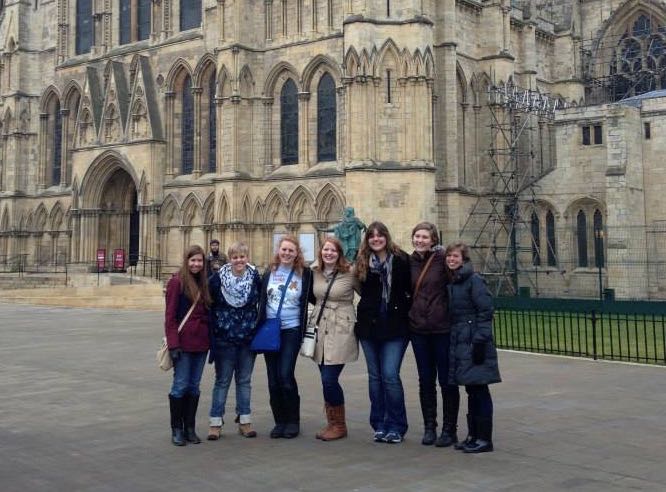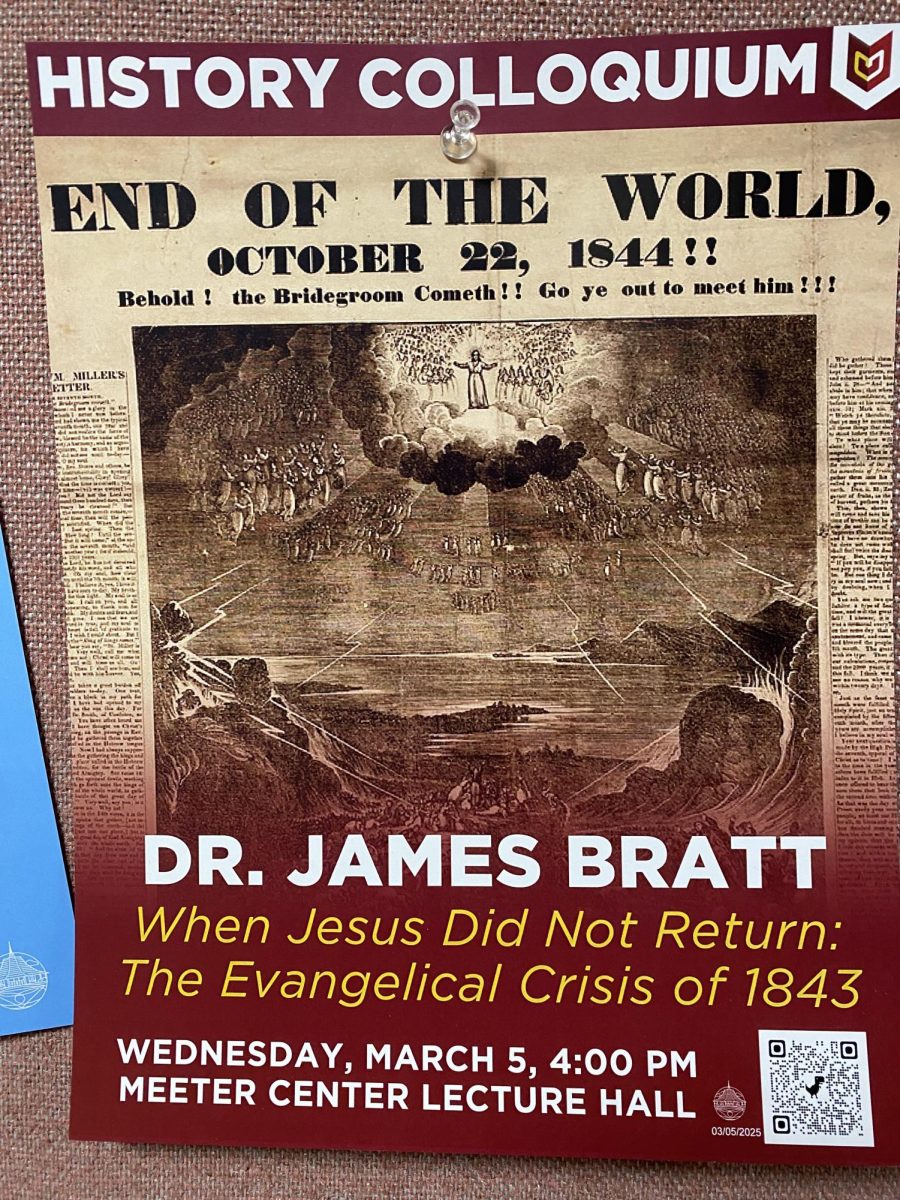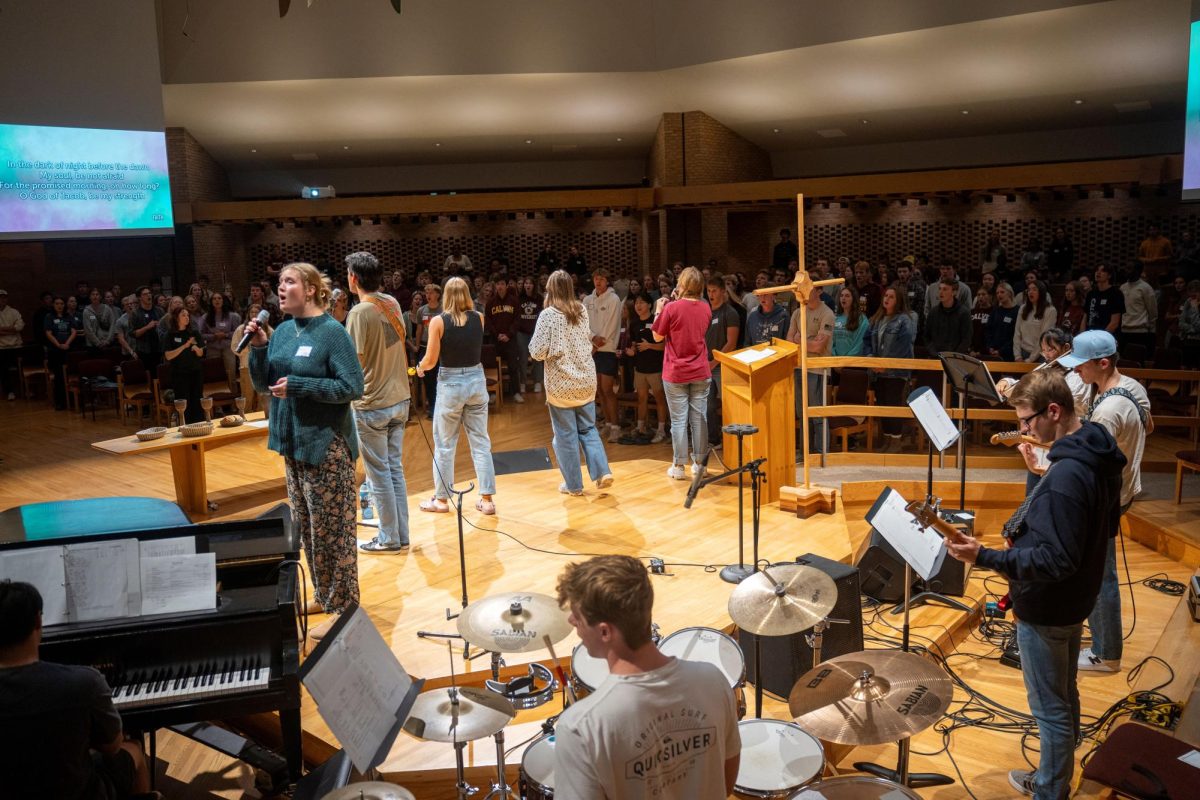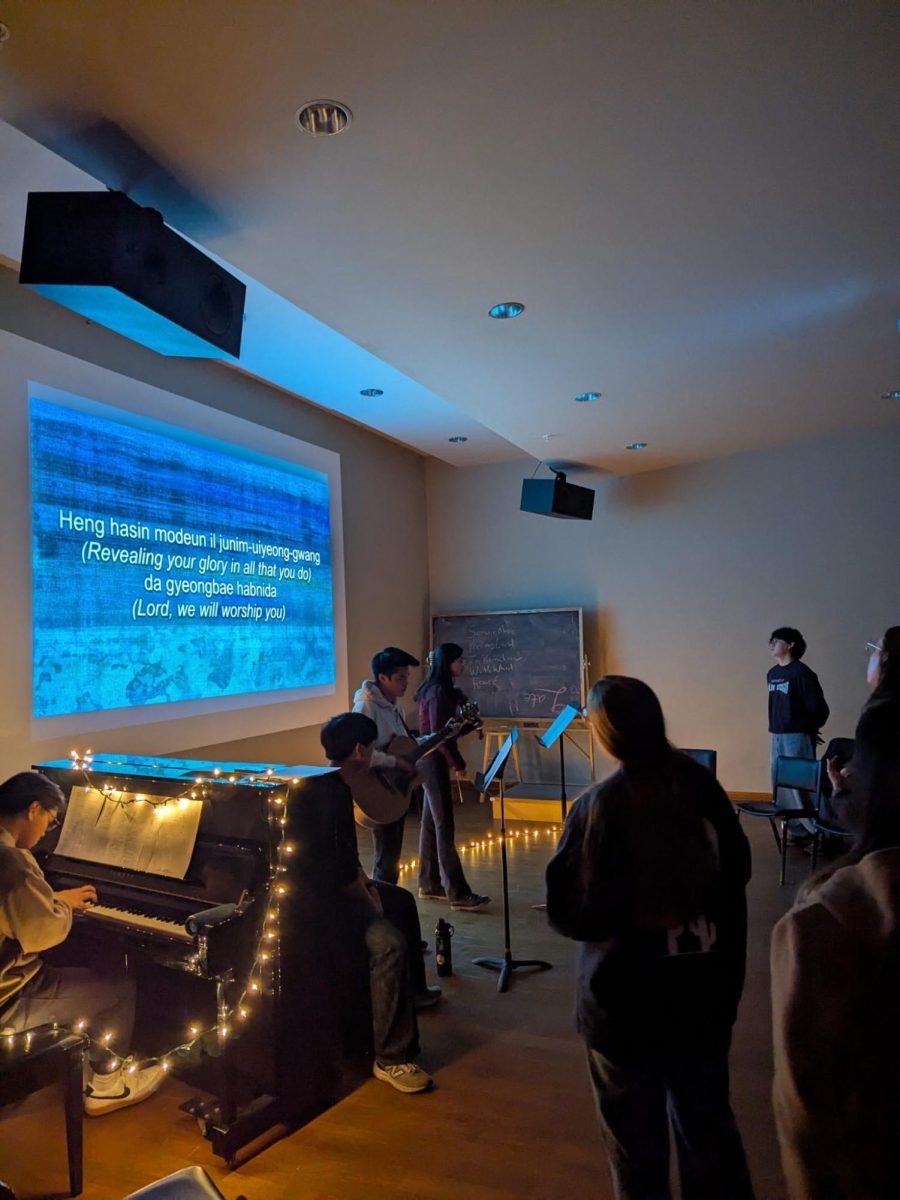The ordination of Libby Lane, the first female bishop in the Church of England, took place on Jan. 26, 2015, in the York Minster Cathedral. Six Calvin students on the York semester were given the chance to attend this ceremony.
Sharon Dhavale, a junior at Calvin, said she was surprised that normal folk off the street were able to attend. She described the event as a “big, long church service” that included liturgies, a sermon and Holy Communion.
Abigail Peoples, a sophomore on the Britain program, said the church service, people and event all felt very big.
“It made me feel like a part of something bigger than I was,” she said. “I’m here in the presence of a historic event that I just stumbled upon, and I felt so unworthy.”
Lane’s ordination as the first female bishop made this event one of great significance for both the equality movements and the Church of England.
Peoples recounted a man calling out in protest when the archbishop of York, John Sentamu, turned to the congregation and asked if it was their will that Lane be ordained. The crowd was supposed to say, “It is,” but the man (later identified as Reverend Paul Williamson) yelled, “…not in the Bible!”
After the outburst, the archbishop of York read the law passed last fall that affirmed the viability of a woman being appointed to the office of bishop. He again asked the congregation if it was their will.
Peoples said the applause following the second question was “surreal.” There was screaming, whistling, waving and objects being thrown.
“At that moment I felt so a part of something I had no right to be a part of,” Peoples said.
Dhavale also said that being a part of this service was a unique experience.
“I enjoyed communion, where we drank right from the cup. It felt really special,” she said.
At the forefront of the service was the issue of women serving in such high positions in the church. Peoples recalled discussions she had earlier with students studying theology at York St. John University about 1 Timothy 2:12, which says, “I do not permit a woman to teach or to have authority over a man.” This verse is the basis for many of the protests.
However, at the service itself, Peoples was impressed with the amount of acceptance and support shown by those attending.
Dhavale said that she didn’t necessarily grow up with women pastors and she doesn’t necessarily agree that women should be pastors; however, this event seemed monumental for equality movements, and Lane will serve as a representative for all women.
“With the changing world, the fact that [Libby Lane] became a bishop is a huge tribute to female equality and overall a good thing for equality.”







